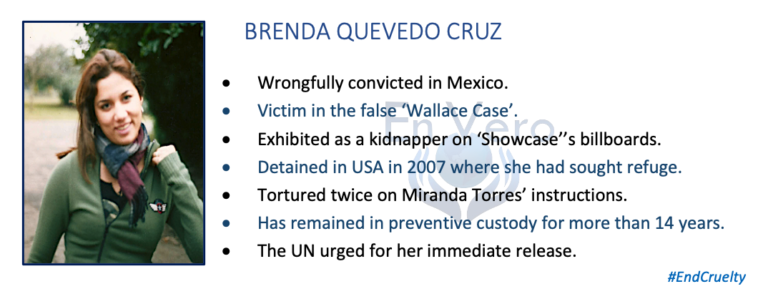 Source: Iran Wirte
Source: Iran Wirte
September 4, 2015
Death Sentence for Spiritual Leader Reveals Cracks in Iran’s Power Base
Human rights activists have launched fresh appeals for the release of spiritual leader Mohammad Ali Taheri after a revolutionary court sentenced him to death on August 1.
Despite hopes that the human rights situation would improve as part of a greater openness emerging from the nuclear deal, the court ruled that Taheri, the founder of the spiritual movement Erfan-e Halgheh, was guilty of spreading corruption on earth.
Taheri, a writer and alternative medicine practitioner, has been incarcerated at Evin Prison since May 2011, after being arrested on a number of prior occasions.
Taheri founded the Erfan-e Halgheh art and culture institute in Tehran in 2001. Testimonies from his students say that Taheri used alternative cures and specialist healing to treat patients for a range of psychological and medical conditions.
Taheri was first arrested in 2010 on the charge of “acting against national security”. He was kept in solitary confinement for 67 days. He was arrested for the second time in spring 2011 on charges of apostasy, Moharebeh (enmity against God), insulting the religious sanctities, insulting the Prophet Mohammed and spreading corruption on earth.
Up until a few years before his first arrest, Taheri was free to pursue his practice and faced no government restrictions. He held his classes at Tehran University, published several books and was permitted to deliver public speeches. But as his audience grew, challenges against him began: government restrictions increased to such an extent that he was forced to stop his activities in 2010.
Taheri was arrested for the third time on May 4, 2011. On October 30, 2011, Branch 26 of Tehran’s Revolutionary Court sentenced him to five years in prison for “blasphemy,” to 74 lashes for “touching the wrists of female patients,” and 900 million toman in fines (approximately $300,000) for “interfering in medical science,” “earning illegitimate funds,” and “distribution of audio-visual products and use of academic titles.”
During his imprisonment, Taheri was forced to confess and was tortured.
Iranian authorities routinely prosecute and punish individuals belonging to minority religions, or who adopt alternative interpretations of Islam other than the state’s official ideology.
Baha’is, Christian converts, Gonabadi Dervishes and Sunni Muslims have been targeted for their religious beliefs. However, the Iranian government is normally reluctant to openly prosecute on grounds of religion, as this is in clear contradiction of its own obligations under international human rights law, including the International Covenant on Civil and Political Rights. As part of its commitment as a signatory to the covenant, the Islamic Republic is obliged to abide by its provisions, including Article 18, which grants the right to freedom of thought, conscience and religion. Instead, authorities persecute religious minorities or Muslims with alternative interpretations of Islam in indirect ways, accusing them of security-related offences, including acting against national security, propaganda against the state and espionage.
Taheri was also initially indicted with a security-related charge [acting against national security], but this charge was later changed to a series of religious charges, including apostasy and insulting the religious sanctities, and eventually led to the crime of spreading corruption on earth, which carries a death penalty.
Taheri’s prosecution is clearly in breach of Iran’s obligations under international human rights law, but is it justified on Islamic grounds? Taheri has stated on several occasions that he has never renounced the foundations of Islam in his teachings.
Several sections of the Koran stress the importance of freedom of religion in Islam, and state that people should not be forced to accept Islam under duress; other parts of the Koran stress the importance of freedom of thought, conscience and religion.
- Verse 2:256: “[T]here is no compulsion in religion: truth stands out clear from error. Whoever rejects evil and believes in God has established the most trustworthy grasp that will never break; God hears and knows all things.”
- Verse 18:29: “And say, ‘The truth is from your Lord, so whoever wills, let him believe; and whoever wills, let him disbelieve’.”
- Verse 10:108: “O you mankind! Now truth [the Koran and the prophet], has come to you from your Lord. So whosoever receives guidance, he does so for the good of his own self, and whosoever goes astray, he does so to his own loss.” This verse also says that the prophet does not act as a wakil (guardian)
- Verses 66-68: “So remind, [O Mohammad]; you are only a reminder; you are not a controller over them”
And:
- Verse 88:21-22: “The Duty of the Prophet is only to tell the truth and not to enforce it upon the people.”
At the same time, it is true that some Koranic verses appear to be incompatible with the right to freedom of religion upheld in other verses. Verse 9:29 states: “Fight those who believe not in Allah nor the Last Day, nor hold that forbidden which hath been forbidden by Allah and His Messenger, nor acknowledge the religion of Truth, (even if they are) of the People of the Book, until they pay the jezya [the money non-Muslims historically paid their Muslim conquerors] with willing submission, and feel themselves subdued.”
Confronting Contradictions
So how do religious reformers respond to this seemingly contradictory nature in the Koran? On the whole, they agree that no Koranic verse should be read in isolation. Rather, they say, one should always read the entire Surah (chapter) and, crucially, consider the social context in which it was issued. For example, regarding Verse 9:29 above, when taking into consideration the full text of the Surah, it is important to note that this particular verse was issued at a time of war, when Muslims had to protect their newly-formed community and at a time when converting to Islam was equated with joining enemy combatants. So, in this context, conversion was considered to be a security crime — treason or subversion — rather than a religious crime. Islamic reformers emphasize the importance of the role of intent in assigning criminality to apostasy at that time — a point that was unfortunately neglected by some groups of Muslims later.
Many Islamic scholars, including Mohsen Kadivar, have argued that the neither the prophet nor the holy imams ever punished anyone for apostasy. Whenever a punishment was issued, it was always in relation to other crimes.
Various scholars of Islamic studies, including Mehdi Khalaji, have argued that, in the past, apostasy verdicts were issued to advance political aims — to suppress dissent and strengthen Iran’s system of government once the velayat-e faqih (Islamic jurist system) was put in place — rather than religious ones.
So those who were defined to be apostates because they did not conform to the orthodox interpretation of Islam, Khalaji says, did not consider themselves to be apostates.They were not given any chance to defend themselves in any court of law. In this case, the crime of apostasy against Islam cannot be issued against anyone if he or she does not consider himself or herself to have committed apostasy.
Khalaji argues that in the past, many Muslim intellectuals were excommunicated after being pronounced as apostates, including Iranian revolutionary and sociologist Ali Shariati.
The Famous Fatwa
With the establishment of the Islamic Republic of Iran in 1979, excommunication was applied more extensively. Khalaji points to the apostasy verdict Ayatollah Khomeini issued against British-Indian novelist Salman Rushdie as one of the most prominent death fawtas in recent history — and argues that the fatwa was issued for political aims. “The death fatwa was issued against Rushdie at a time when his book was neither circulated in Iran, nor translated into Persian. Consequently, Iranian society did not have access to the content of the book. For all these reasons it is not unthinkable that Khomeini himself had not read the book. The death fatwa was issued at a time when Khomeini reluctantly signed a truce agreement with Iraq and was in the process of dismissing Ayatollah Montazeri as his successor. Moreover, the country was economically unstable. Khomeini was ill at the time and was aware of his fatal disease. The differing opinions of the two ayatollahs [Khomeini and Montazeri] regarding the execution of political prisoners divided the country. Khomeini needed to do something shocking and controversial in order to attract the world’s attention to Iran and to his leadership. Khalaji says that it was under these circumstances that the death fatwa was issued against Salman Rushdie. So Khalaji concludes that the fatwa against Salman Rushdie was not issued for religious considerations, but was rather a policy to keep Khomeini at the center of attention and in power.
This example demonstrates how religion has been used to justify the political goals of Iran’s leaders since 1979, and how religion can be manipulated to abuse citizen’s rights, including the right to freedom of thought and expression.
Unfortunately, it is now Mohammad Taheri’s turn to fall victim to this policy and tactic.




